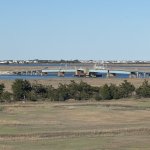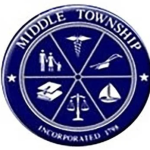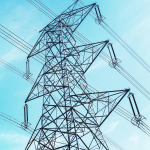CAPE MAY – Coast Guard Commandant Admiral Thad W. Allen is calling for more safeguards for commercial fishing vessels.
He stopped at Training Center Cape May Friday Aug. 14 and met with local media.
Allen said he could not discuss specifics of the sinking of fishing vessel Lady Mary which took the lives on six crewmen. He said a lot of information has been garnered about the Lady Mary accident and it is undergoing reviews at various levels of the Coast Guard.
“Fishing vessel safety is a looming issue we really need to come to grips with,” said Allen.
He mentioned three areas of concern, which he said he believed Congress may be willing to pass legislation:
•Crew competence and training for survival systems and operating equipment on board to control flooding and fires.
•Stability of the vessels, noting a number of fishing vessels are reconfigured moving from towing reels to deploying dredges for clams and scallops which changes the center of gravity. Stability tests are required only for vessels greater than 79 feet in length.
•Inspection of vessels as condition of operation instead of the current, voluntary dockside inspections.
Allen is a former search and rescue controller. He said the Coast Guard’s general guideline is to be able to get off coast and render aid within two hours of notification. He said they like to arrive sooner.
There has been speculation that the Lady Mary may have been struck by a large container ship. Such vessels move through fishing areas at a rapid pace. Allen said speed limits had been set by the Department of Commerce and NOAA in certain areas to protect the Wright Whale, which have been struck by large ships. He said the Coast Guard was a cooperating agency but the final decision was with the other agencies.
Allen said ships greater than 300 gross tons must carry identification devices either Automated Identification Systems (AIS) which is a line of sight VHF signal, developed as a collision avoidance tool. He said most vessels are below the threshold of 300 tons.
Another requirement of vessels over 300 gross tons operating within 1,000 miles of a coastal state is the vessel is identified through a satellite based system called Long Range Identification and Tracking.
With that technology available, he asked if there are safety or security reasons to require the identification technology on vessels of less than 300 gross tons. He said some fishing vessels are required to carry tracking systems because they operate in areas only open to fishing at limited times of the year but it is not intended to be a watch system monitored by the Coast Guard as a search and rescue system.
No vessels responded to a distress call on VHF radio from the Lady Mary nor was the signal heard on shore. The Lady Mary was about 60 miles off the coast of Cape May when it sunk.
The Rescue 21 system receives VHF radio signals of one watt, one meter high, 20 miles offshore. Allen said it wasn’t design to receive signals from 60 to 70 miles offshore.
Vessels are also required to carry Electronic Indicator Beacons or EPIRBs. The Lady Mary’s EPIRB was improperly registered causing a delay in identifying the boat.
The four systems allowed a vessel’s location to be tracked at given time if they are in trouble.
“What we don’t have is mandatory carriage requirements for the equipment and that is the discussion we need to have,” said Allen.
He suggested every boater from recreation to commercial file a float plan covering where the vessel is going and when it will return. There is no regulatory requirement to file a plan, said Allen, noting there were 20 million to 30 million recreational and fishing boats which would be difficult to track.
He said the Coast Guard was preparing to issue regulations for the marine towing industry.
Allen leads the largest component of the Department of Homeland Security comprised of about 42,000 men and women on Active Duty, 7,000 civilians, 8,000 Reservists and 34,000 volunteer Auxiliarists. He is the only four-star Admiral of the Coast Guard, and is appointed for a four-year term by the President of the United States upon confirmation of the US Senate.
The Coast Guard Commandant is not a member of the Joint Chiefs of Staff. He reports to the President, the Secretary of Homeland Security and the Secretary of Defense.
Burleigh – Middle Township is going in the wrong direction. Our taxes keep going up because of too much development. The mayor & committee need to stop acting like their job is keep builders, developers and…








